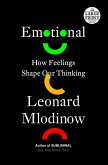Motivation and Its Regulation
The Control Within
Herausgeber: Forgas, Joseph P; Harmon-Jones, Eddie
Motivation and Its Regulation
The Control Within
Herausgeber: Forgas, Joseph P; Harmon-Jones, Eddie
- Broschiertes Buch
- Merkliste
- Auf die Merkliste
- Bewerten Bewerten
- Teilen
- Produkt teilen
- Produkterinnerung
- Produkterinnerung
This book surveys the most recent psychological research on how motivational processes are regulated in daily life to achieve desired outcomes.Contributors are all leading international investigators, who examine key issues about motivation, including self-control, the role of affect and cognition, conscious and unconscious processes, physiology, aggression, perception and attention, and social, cultural and interpersonal effects. It may be used on courses in motivational science, and will also be of interest to students and professionals in clinical, counseling, educational, organizational, marketing and industrial psychology.…mehr
Andere Kunden interessierten sich auch für
![Ostracism, Exclusion, and Rejection Ostracism, Exclusion, and Rejection]() Ostracism, Exclusion, and Rejection86,99 €
Ostracism, Exclusion, and Rejection86,99 €![Social Neuroscience Social Neuroscience]() Social Neuroscience82,99 €
Social Neuroscience82,99 €![Handbook of Prejudice, Stereotyping, and Discrimination Handbook of Prejudice, Stereotyping, and Discrimination]() Handbook of Prejudice, Stereotyping, and Discrimination163,99 €
Handbook of Prejudice, Stereotyping, and Discrimination163,99 €![Future Tense Future Tense]() Tracy Dennis-TiwaryFuture Tense16,99 €
Tracy Dennis-TiwaryFuture Tense16,99 €![Perspectives on Behavioral Self-Regulation Perspectives on Behavioral Self-Regulation]() Perspectives on Behavioral Self-Regulation73,99 €
Perspectives on Behavioral Self-Regulation73,99 €![Sexuality in Close Relationships Sexuality in Close Relationships]() Sexuality in Close Relationships68,99 €
Sexuality in Close Relationships68,99 €![Emotional Emotional]() Leonard MlodinowEmotional34,99 €
Leonard MlodinowEmotional34,99 €-
-
-
This book surveys the most recent psychological research on how motivational processes are regulated in daily life to achieve desired outcomes.Contributors are all leading international investigators, who examine key issues about motivation, including self-control, the role of affect and cognition, conscious and unconscious processes, physiology, aggression, perception and attention, and social, cultural and interpersonal effects. It may be used on courses in motivational science, and will also be of interest to students and professionals in clinical, counseling, educational, organizational, marketing and industrial psychology.
Hinweis: Dieser Artikel kann nur an eine deutsche Lieferadresse ausgeliefert werden.
Hinweis: Dieser Artikel kann nur an eine deutsche Lieferadresse ausgeliefert werden.
Produktdetails
- Produktdetails
- Verlag: Taylor & Francis Ltd (Sales)
- Seitenzahl: 398
- Erscheinungstermin: 9. Mai 2014
- Englisch
- Abmessung: 226mm x 151mm x 27mm
- Gewicht: 544g
- ISBN-13: 9781848725621
- ISBN-10: 1848725620
- Artikelnr.: 39616643
- Herstellerkennzeichnung
- Libri GmbH
- Europaallee 1
- 36244 Bad Hersfeld
- gpsr@libri.de
- Verlag: Taylor & Francis Ltd (Sales)
- Seitenzahl: 398
- Erscheinungstermin: 9. Mai 2014
- Englisch
- Abmessung: 226mm x 151mm x 27mm
- Gewicht: 544g
- ISBN-13: 9781848725621
- ISBN-10: 1848725620
- Artikelnr.: 39616643
- Herstellerkennzeichnung
- Libri GmbH
- Europaallee 1
- 36244 Bad Hersfeld
- gpsr@libri.de
Joseph P. Forgas is Scientia Professor of Psychology at the University of New South Wales, Sydney. He received his D.Phil. degree from the University of Oxford, and a D.Sc degree also from Oxford. His research investigates affective influences on social cognition, motivation and behavior. He has published 26 books and over 200 journal articles and book chapters. He received the Order of Australia in 2012, as well as the APS's Distinguished Scientific contribution Award, the Humboldt Research Prize, and is Fellow of the Academy of Social Sciences in Australia, the Association for Psychological Science, Society of Personality and Social Psychology and the Hungarian Academy of Sciences. Eddie Harmon-Jones is Professor of Psychology at the University of New South Wales, Sydney. His research focuses on emotions and motivations, their implications for social and cognitive processes, and their underlying neural circuits. He has published over 150 articles and book chapters and four books. He received the Award for Distinguished Early Career Contribution to Psychophysiology from the Society for Psychophysiological Research (2002), and the Career Trajectory Award from the Society of Experimental Social Psychology (2012). He is a Fellow of the Association for Psychological Science, the Society for Experimental Social Psychology, and the Society for Personality and Social Psychology.
Motivation and Its Control: Introduction and Overview
E. Harmon-Jones
J.P. Forgas. Part 1. Introduction and Basic Issues. Beyond Pleasure and Pain: Value from Engagement
E.T. Higgins. The Evolutionary Unconscious: From 'Selfish Genes' to 'Selfish Goals'
J.A. Bargh
J.Y. Huang. Dual Process Models and Serotonergic Functioning: Impulse and Self-Control
C.S. Carver
S.L. Johnson
J. Joormann. Imagination and Behavioral Control. C.N. Macrae
B.M. Christian
L.K. Miles. The Ego Fixation Hypothesis: Involuntary Persistence of Self-Control
S.L. Koole
M. Tops
S. Strübin
J. Bouw
I.K. Schneider
N.B. Jostmann. Part 2. Affective Mechanisms and Affect Control. No Pain
No Gain: How Distress Underlies Effective Self-control (and Unites Diverse Social Psychological Phenomena)
M. Inzlicht
L. Legault. The Relationship Between Individual Differences in Executive Functioning and Emotion Regulation: A Comprehensive Review
B.J. Schmeichel
D. Tang. The Regulation of Vision: How Motivation and Emotion Shape What We See
S.B. Most. On the Regulatory Functions of Mood: Affective Influences on Memory
Judgments and Behavior
J.P. Forgas. Psychological and Biological Mechanisms Underlying Control Over Anger and Aggression
T.F. Denson. Part 3. Approach and Avoidance Processes in Social Motivation. The Embodiment of Approach Motivation
E. Harmon-Jones
T.F. Price
C. Harmon-Jones. Avoidance Motivation is Resource Depleting
A.J. Elliot
J. Schüler
M. Roskes
C.K.W. De Dreu. When Saying Yes to the Doughnut Is Not Saying No To Self-control: A Hierarchical Approach to Flexibility in Conflict Representation
A.A. Scholer. Motivated Distance Perception Serves Action Regulation
E. Balcetis
S.Cole. Part 4. Interpersonal
Social and Cultural implications. Sex
Love
Temptation: Human Mating Motives and their Regulation
J.K. Maner
J.Leo. The Natural Order of Things: The Motivated Underpinnings of Naturalistic Explanations for Inequality
J.L. Napier. Cultural Neuroscience of Choice Justification
S. Kitayama
S. Tompson
H.F. Chua. Scaring the Bejesus into People: The Role of Religious Belief in Managing Implicit and Explicit Anxiety
J. Halberstadt
J. Jong. 'It Is Better to Give Than to Receive': The Role of Motivation and Self-control in Determining the Consequences of Ostracism for Targets and Sources
L. Zadro
A. Godwin
K. Gonsalkorale.
E. Harmon-Jones
J.P. Forgas. Part 1. Introduction and Basic Issues. Beyond Pleasure and Pain: Value from Engagement
E.T. Higgins. The Evolutionary Unconscious: From 'Selfish Genes' to 'Selfish Goals'
J.A. Bargh
J.Y. Huang. Dual Process Models and Serotonergic Functioning: Impulse and Self-Control
C.S. Carver
S.L. Johnson
J. Joormann. Imagination and Behavioral Control. C.N. Macrae
B.M. Christian
L.K. Miles. The Ego Fixation Hypothesis: Involuntary Persistence of Self-Control
S.L. Koole
M. Tops
S. Strübin
J. Bouw
I.K. Schneider
N.B. Jostmann. Part 2. Affective Mechanisms and Affect Control. No Pain
No Gain: How Distress Underlies Effective Self-control (and Unites Diverse Social Psychological Phenomena)
M. Inzlicht
L. Legault. The Relationship Between Individual Differences in Executive Functioning and Emotion Regulation: A Comprehensive Review
B.J. Schmeichel
D. Tang. The Regulation of Vision: How Motivation and Emotion Shape What We See
S.B. Most. On the Regulatory Functions of Mood: Affective Influences on Memory
Judgments and Behavior
J.P. Forgas. Psychological and Biological Mechanisms Underlying Control Over Anger and Aggression
T.F. Denson. Part 3. Approach and Avoidance Processes in Social Motivation. The Embodiment of Approach Motivation
E. Harmon-Jones
T.F. Price
C. Harmon-Jones. Avoidance Motivation is Resource Depleting
A.J. Elliot
J. Schüler
M. Roskes
C.K.W. De Dreu. When Saying Yes to the Doughnut Is Not Saying No To Self-control: A Hierarchical Approach to Flexibility in Conflict Representation
A.A. Scholer. Motivated Distance Perception Serves Action Regulation
E. Balcetis
S.Cole. Part 4. Interpersonal
Social and Cultural implications. Sex
Love
Temptation: Human Mating Motives and their Regulation
J.K. Maner
J.Leo. The Natural Order of Things: The Motivated Underpinnings of Naturalistic Explanations for Inequality
J.L. Napier. Cultural Neuroscience of Choice Justification
S. Kitayama
S. Tompson
H.F. Chua. Scaring the Bejesus into People: The Role of Religious Belief in Managing Implicit and Explicit Anxiety
J. Halberstadt
J. Jong. 'It Is Better to Give Than to Receive': The Role of Motivation and Self-control in Determining the Consequences of Ostracism for Targets and Sources
L. Zadro
A. Godwin
K. Gonsalkorale.
Motivation and Its Control: Introduction and Overview
E. Harmon-Jones
J.P. Forgas. Part 1. Introduction and Basic Issues. Beyond Pleasure and Pain: Value from Engagement
E.T. Higgins. The Evolutionary Unconscious: From 'Selfish Genes' to 'Selfish Goals'
J.A. Bargh
J.Y. Huang. Dual Process Models and Serotonergic Functioning: Impulse and Self-Control
C.S. Carver
S.L. Johnson
J. Joormann. Imagination and Behavioral Control. C.N. Macrae
B.M. Christian
L.K. Miles. The Ego Fixation Hypothesis: Involuntary Persistence of Self-Control
S.L. Koole
M. Tops
S. Strübin
J. Bouw
I.K. Schneider
N.B. Jostmann. Part 2. Affective Mechanisms and Affect Control. No Pain
No Gain: How Distress Underlies Effective Self-control (and Unites Diverse Social Psychological Phenomena)
M. Inzlicht
L. Legault. The Relationship Between Individual Differences in Executive Functioning and Emotion Regulation: A Comprehensive Review
B.J. Schmeichel
D. Tang. The Regulation of Vision: How Motivation and Emotion Shape What We See
S.B. Most. On the Regulatory Functions of Mood: Affective Influences on Memory
Judgments and Behavior
J.P. Forgas. Psychological and Biological Mechanisms Underlying Control Over Anger and Aggression
T.F. Denson. Part 3. Approach and Avoidance Processes in Social Motivation. The Embodiment of Approach Motivation
E. Harmon-Jones
T.F. Price
C. Harmon-Jones. Avoidance Motivation is Resource Depleting
A.J. Elliot
J. Schüler
M. Roskes
C.K.W. De Dreu. When Saying Yes to the Doughnut Is Not Saying No To Self-control: A Hierarchical Approach to Flexibility in Conflict Representation
A.A. Scholer. Motivated Distance Perception Serves Action Regulation
E. Balcetis
S.Cole. Part 4. Interpersonal
Social and Cultural implications. Sex
Love
Temptation: Human Mating Motives and their Regulation
J.K. Maner
J.Leo. The Natural Order of Things: The Motivated Underpinnings of Naturalistic Explanations for Inequality
J.L. Napier. Cultural Neuroscience of Choice Justification
S. Kitayama
S. Tompson
H.F. Chua. Scaring the Bejesus into People: The Role of Religious Belief in Managing Implicit and Explicit Anxiety
J. Halberstadt
J. Jong. 'It Is Better to Give Than to Receive': The Role of Motivation and Self-control in Determining the Consequences of Ostracism for Targets and Sources
L. Zadro
A. Godwin
K. Gonsalkorale.
E. Harmon-Jones
J.P. Forgas. Part 1. Introduction and Basic Issues. Beyond Pleasure and Pain: Value from Engagement
E.T. Higgins. The Evolutionary Unconscious: From 'Selfish Genes' to 'Selfish Goals'
J.A. Bargh
J.Y. Huang. Dual Process Models and Serotonergic Functioning: Impulse and Self-Control
C.S. Carver
S.L. Johnson
J. Joormann. Imagination and Behavioral Control. C.N. Macrae
B.M. Christian
L.K. Miles. The Ego Fixation Hypothesis: Involuntary Persistence of Self-Control
S.L. Koole
M. Tops
S. Strübin
J. Bouw
I.K. Schneider
N.B. Jostmann. Part 2. Affective Mechanisms and Affect Control. No Pain
No Gain: How Distress Underlies Effective Self-control (and Unites Diverse Social Psychological Phenomena)
M. Inzlicht
L. Legault. The Relationship Between Individual Differences in Executive Functioning and Emotion Regulation: A Comprehensive Review
B.J. Schmeichel
D. Tang. The Regulation of Vision: How Motivation and Emotion Shape What We See
S.B. Most. On the Regulatory Functions of Mood: Affective Influences on Memory
Judgments and Behavior
J.P. Forgas. Psychological and Biological Mechanisms Underlying Control Over Anger and Aggression
T.F. Denson. Part 3. Approach and Avoidance Processes in Social Motivation. The Embodiment of Approach Motivation
E. Harmon-Jones
T.F. Price
C. Harmon-Jones. Avoidance Motivation is Resource Depleting
A.J. Elliot
J. Schüler
M. Roskes
C.K.W. De Dreu. When Saying Yes to the Doughnut Is Not Saying No To Self-control: A Hierarchical Approach to Flexibility in Conflict Representation
A.A. Scholer. Motivated Distance Perception Serves Action Regulation
E. Balcetis
S.Cole. Part 4. Interpersonal
Social and Cultural implications. Sex
Love
Temptation: Human Mating Motives and their Regulation
J.K. Maner
J.Leo. The Natural Order of Things: The Motivated Underpinnings of Naturalistic Explanations for Inequality
J.L. Napier. Cultural Neuroscience of Choice Justification
S. Kitayama
S. Tompson
H.F. Chua. Scaring the Bejesus into People: The Role of Religious Belief in Managing Implicit and Explicit Anxiety
J. Halberstadt
J. Jong. 'It Is Better to Give Than to Receive': The Role of Motivation and Self-control in Determining the Consequences of Ostracism for Targets and Sources
L. Zadro
A. Godwin
K. Gonsalkorale.








